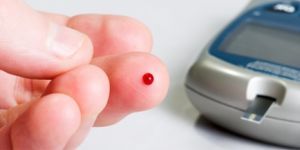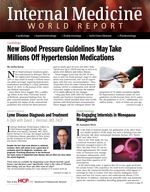Publication
Article
Internal Medicine World Report
Antihyperglycemic Agent Has No Cardiovascular Effect in Type 2 Diabetics
Author(s):
Although the US Food and Drug Administration revised its approval processes for antihyperglycemic agents to include cardiovascular safety components, researchers still cannot discern whether those drugs affect cardiovascular outcomes.

Although the US Food and Drug Administration (FDA) revised its approval processes for antihyperglycemic agents to include cardiovascular (CV) safety components, researchers still cannot discern whether those drugs affect cardiovascular outcomes.
In a study published in the October 2103 issue of New England Journal of Medicine, a multinational team of scientists set out to investigate saxagliptin, a dipeptidyl peptidase 4 (DPP-4) inhibitor, and its potential to reduce microvascular complications in patients with type 2 diabetes mellitus (T2DM) while improving glycemic control.
Benjamin M. Scirica, MD, MPH, and colleagues participating in the Saxagliptin Assessment of Vascular Outcomes Recorded in Patients with Diabetes Mellitus (SAVOR)—Thrombolysis in Myocardial Infarction (TIMI) Steering Committee and Investigators randomly assigned 16,492 patients with T2DM and a history or elevated risk for CV events to receive saxagliptin or placebo. Treating physicians adjusted the patients’ other medications, including antihyperglycemic agents, as needed. They also monitored CV death, MI, and ischemic stroke for a median of 2.1 years, which served as primary endpoints.
The researchers identified a primary endpoint event in 613 patients in the saxagliptin group (7.3%) and 609 patients in the placebo group (7.2%), which indicated that the rates of CV death, MI, and ischemic stroke were similar for saxagliptin and placebo intervention. Additionally, a composite secondary endpoints of CV death, MI, stroke, hospitalization for unstable angina, coronary revascularization, or heart failure (HF) occurred in 1,059 patients in the saxagliptin group (12.8%) and 1,034 patients in the placebo group (12.4%).
Patients in the saxagliptin group were more likely to be hospitalized for HF (3.5%) than their placebo counterparts (2.8%) — a finding in line with previous studies that observed an increased risk of HF in trials evaluating other antihyperglycemic agents, such as thiazolidinediones. However, the 2 patient groups both had very low rates of acute and chronic pancreatitis, an adverse event and safety marker of special interest due to previous observations of a potential association between DPP-4 inhibitors and pancreatic sequelae.
“DPP-4 inhibition with saxagliptin did not increase or decrease the rate of ischemic events, though the rate of hospitalization for HF was increased,” the study authors concluded. Overall, saxagliptin was neither causative of cardiac events nor cardioprotective.
Although saxagliptin improved glycemic control, the authors said other approaches are needed to reduce CV risk in patients with T2DM.






